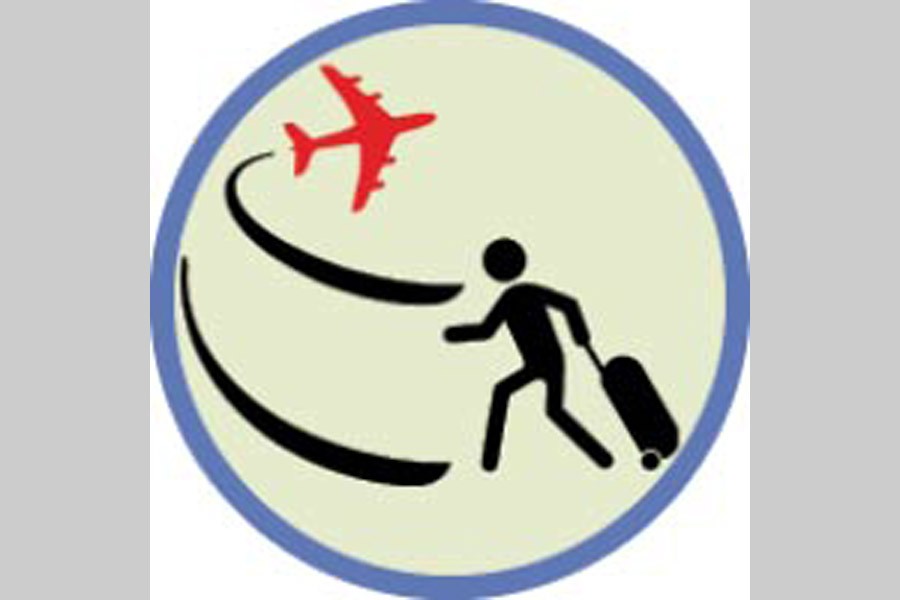A team from the Anti-Corruption Commission (ACC) late last week reportedly conducted a drive in the Medical Education and Family Welfare Division (ME&FWD) of the Ministry of Health and Family Welfare in response to an allegation about irregularities in nominating officials for foreign training.
The anti-graft watchdog received a complaint over its 'hotline" that the ME&FWD has nominated 21 administrative officers and personal assistants for training abroad in 2018-19. Allegation was that the job the selected officials do at their respective workplaces had nothing to do with the contents of training imparted to them abroad. The ACC also has received identical complaints in the case of some other units under the Directorate General of Health Services.
However, the allegation about irregularities in selection of officials for training abroad is nothing new. Similar allegations are made very often. The fact remains that the frequency of such allegations has only increased in recent times.
The state of affairs with personnel selection for foreign tours or training programmes is almost identical to that is observed in the case of procurement of goods and services in government agencies. Allegations of massive irregularities are very common in the case of latter.
The visits of about 200 public functionaries between 2016 and April this year to Russia under Tk 1.3 trillion Rooppur nuclear power plant project have made news. They went in batches --- some of them visited nuclear plants, a few attended training courses and most others went there for 'sightseeing'. One former science and technology secretary visited not just Russia but a number of European countries reportedly with Rooppur project money. Many high officials working in other ministries such as home, shipping, railways, transport visited Russia under the Rooppur project fund.
The most discussed foreign tour was undertaken by 41 officials belonging to Chittagong Water and Sewerage Authority (CWASA) and Ministry of Local Government, Economic Relations Division (ERD) and Planning Division to Uganda.
The officials went there for training organised by Ugandan consultancy firm, the National Water and Sewerage Corporation. The World Bank (WB) has appointed the firm under a Tk18 billion project styled Chittagong Water Supply improvement and Sanitation Project.
Half of the officials and employees of CWASA, who included some labour leaders, had gone to Uganda in separate batches. At least Tk 50 million, reportedly, was spent on these visits to Uganda, an African country, where large part of the population do not have access to safe drinking water. The sewerage system is also underdeveloped there. So, the reasons for sending these officials to that country at taxpayers' cost would always remain a mystery.
The 'drive' conducted by the ACC against alleged irregularities in the ME&FWD of the health ministry was necessary. But the ACC action appears to be selective. It has overlooked many such irregularities involving ministers and top government officials. If there were actions on the part of ACC, the media might have missed those.
Irregularities in the selection of officials and employees for the Hajj Mission every year are well-known. A large number of people from the Islamic Foundation and the religious affairs ministry are included in the Mission, but a large majority of them reportedly did not offer any service to the Bangladeshi pilgrims.
The latest revelation about a foreign trip by eight teachers and officials of the Kabi Nazrul University at Trishal to a couple of European countries in connection with the purchase of 15 elevators is even more interesting.
The supplier of the lifts is financing the visit of these people who are totally ignorant of lift operations. Though it might appear that no public money is involved in the proposed trip, in reality, the supplier might have added the money to be spent on the tour to the cost of the elevators.
A free-for-all situation is prevailing in foreign trips organised under different projects or sponsored by donor agencies. Favouritism rules the roost in selection of participants. Officials and employees who are not eligible for undertaking such visits are selected very often. Lobbying and individual choices do play a major part in such selection process.
Unfortunately, the government has not taken any measure to stop recurrence of irregularities in the selection of officials for foreign trips by state entities and apparently preferred to be an onlooker.
The state of governance in most government agencies and public institutions has deteriorated so much that it is hard to expect anything better and fair. If that was not so, how could the teachers of a public university opt for visiting foreign countries with funds coming from a supplier of elevators?
Poor governance at the state level has much to do with what is happening with government procurement or foreign trips by public servants. The outcome of mal-governance for many decades has gone deep into society and institutions at all levels. Deep-seated reforms remain the best cure. But reforms are always despised most by the people manning the administration.


